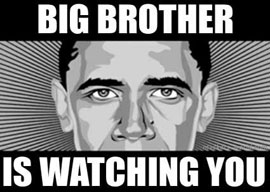
October 29, 2013

The first reports in early May of 1960 were that a U.S. weather plane, flying out of Turkey, had gone missing.
A silent Moscow knew better. After letting the Americans crawl out on a limb, expatiating on their cover story, Russia sawed it off.
Actually, said Nikita Khrushchev, we shot down a U.S. spy plane 1000 miles inside our country flying over a restricted zone.
We have the pilot, we have the camera, we have the pictures. We have the hollow silver dollar containing the poisoned-tipped needle CIA pilot Francis Gary Powers declined to use.
Two weeks later, Khrushchev used the U-2 incident and Ike’s refusal to apologize to dynamite the Paris summit and the gauzy Spirit of Camp David that had come out of his ten-day visit to the USA.
Eisenhower’s reciprocal trip to Russia was now dead.
A year later, President Kennedy would be berated by Khrushchev in Vienna. The Berlin Wall would go up. And Khrushchev would begin secretly to install nuclear missiles in Cuba, 90 miles from Key West.
Had there been no U-2 incident, would the history of the Cold War have been different? Perhaps.
Yet, while there were critics of launching Power’s U-2 flight so close to the summit, Americans understood the need for espionage. Like us, the Soviets were installing ballistic missiles, every single one of which could incinerate an American city.
Post 9/11, too, Americans accepted the necessity for the National Security Agency to retrieve and sift through phone calls and emails to keep us secure from terror attacks. Many have come to accept today’s risks of an invasion of their privacy—for greater security for their family.
And there remains a deposit of trust among Americans that the NSA, the CIA and the Defense Intelligence Agency are not only working for us, they are defending us.
How long Americans will continue to repose this trust, however, is starting to come into question.
Last week, we learned that a high official of the U.S. government turned 200 private phone numbers of 35 friendly foreign leaders, basically the Rolodex of the president, over to the NSA for tapping and taping.
Allied leaders, with whom America works toward common goals, have for years apparently had their private conversations listened to, transcribed and passed around by their supposed U.S. friends.
Angela Merkel has apparently been the subject of phone taps since before she rose to the leadership of Germany and Europe. A victim of the East German Stasi, Ms. Merkel is not amused.
We are told not to be na”¹ve; everyone does it. Spying, not only between enemies but among allies, is commonplace.
This is how the world works. Deal with it.